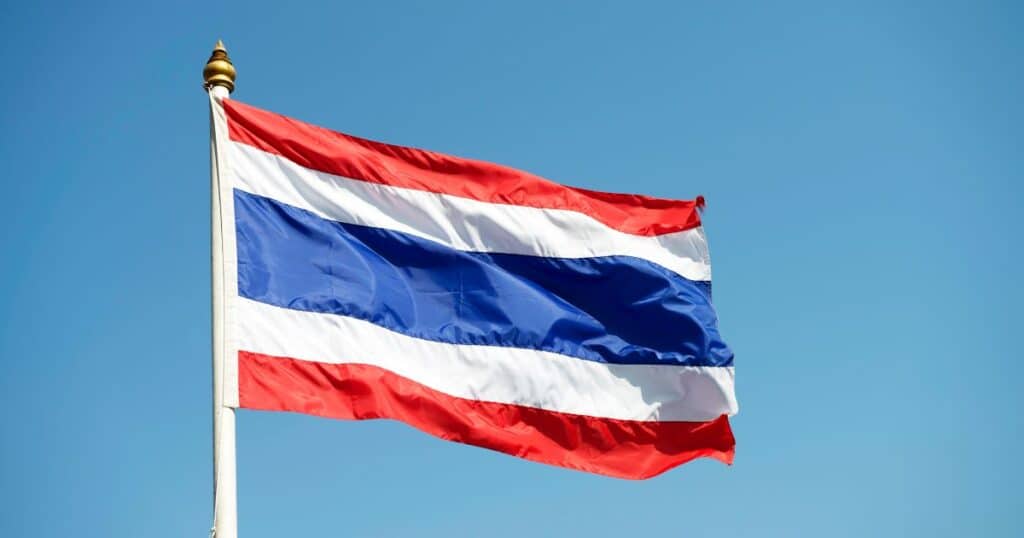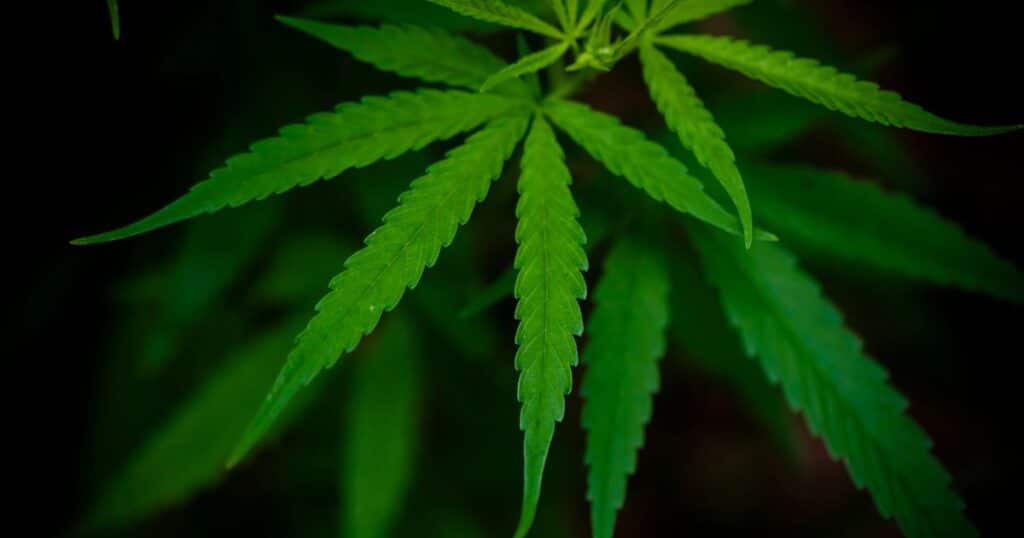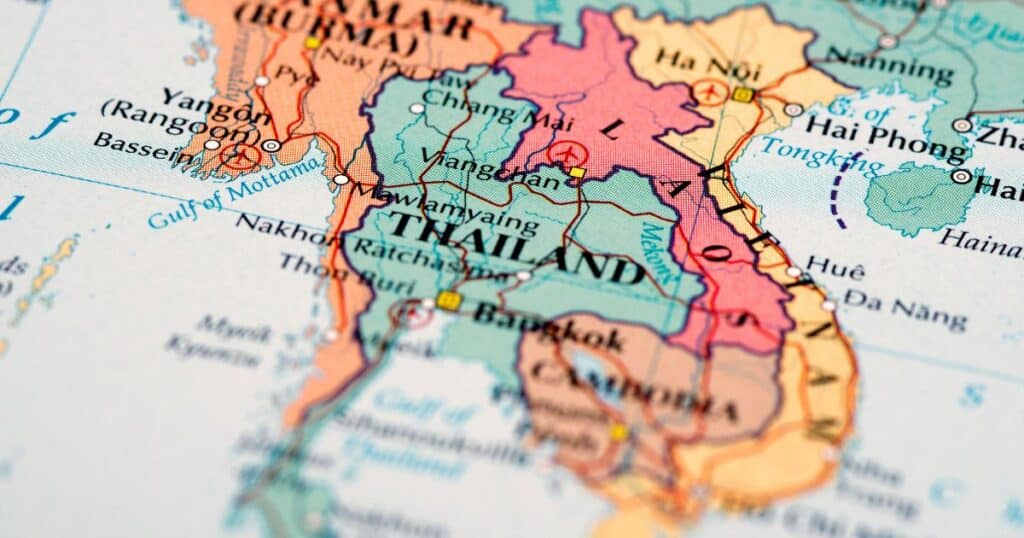Thailand’s flurry of legislation surrounding cannabis has been a hot topic in the international community. In June 2022, the country made headlines when it became the first Southeast Asian nation to decriminalize cannabis. This move was seen as a major step towards progressive drug policy reform in the region.
However, the Thai government is changing course just 18 months after this landmark decision. In a surprising about-face, the country’s Public Health Minister Cholnan Srikaew, announced that cannabis will now be strictly regulated for medical use only per the Thai Examiner.

Cannabis legalization in Thailand has been an ongoing process that started with the legalization of medical use in 2018, the first Asian nation to do so. This move was seen as a progressive step towards the recognition of cannabis as a legitimate form of medicine.
However, it wasn’t until 2022 that marijuana was decriminalized in Thailand. This groundbreaking decision brought about a wave of excitement and led to the opening of the country’s first dispensaries. These new cannabis shops attracted both locals and tourists alike, resulting in a boom in cannabis tourism.
As a result, thousands of shops popped up all over the country, creating jobs and boosting the economy. It seemed like Thailand was on its way to becoming a major player in the global cannabis market.
Following a general election in May of last year, Thailand came under new leadership in September.
The conservative coalition government headed by the Pheu Thai Party is behind the calls for a crackdown on cannabis. The Pheu Thai campaigned on banning the recreational use of marijuana, saying it poses health risks and could cause substance abuse issues among young people.
Impact on Recreational Use
The new law, which is expected to be enacted soon, will limit the amount of THC (tetrahydrocannabinol) in cannabis products to 0.2%. This means that any product containing a higher percentage of this psychoactive ingredient will be deemed illegal.
This decision has sparked concerns among those who use cannabis for recreational purposes. Many argue that such low levels of THC will result in ineffective, subpar products that do not provide the desired effects. This could potentially drive consumers to seek out illegal sources for higher potency cannabis.
The new regulations impose fines of up to 60,000 Thai baht ($1,684) for recreational use, and prison sentences of up to a year. It also proposes fines of up to 100,000 baht ($2,808) for advertising or marketing cannabis for recreational use.
In addition, the stricter regulations on law enforcement to prosecute those misusing recreational marijuana have raised questions about privacy and individual rights.
The impact of these changes on the recreational use of cannabis in Thailand is yet to be seen. However, it is clear that the government’s focus has shifted from catering to recreational users to prioritizing medical use only.
Emphasis on Medical Use
According to Public Health Minister Cholnan Srikaew, recreational use of cannabis is not a priority for the government. Instead, they are committed to promoting its medicinal benefits and ensuring that it is used for medical purposes only.
This emphasis on medical use is further reinforced by the Minister’s push for stricter regulations and concerns about the potential misuse of recreational marijuana.
However, this shift in focus has led to some conflicting regulations with the Thai Traditional and Alternative Medicine Department. This department, whose powers were enhanced by former Public Health Minister Anutin Charnvirakul, has been a key player in legalizing cannabis in Thailand. The conflicting regulations surrounding medical use and recreational use could potentially cause confusion and hinder the progress of the industry.
Notably, the bill does not yet specify whether purchasing cannabis will require a medical certificate.
‘The new law will clearly stipulate that cannabis must be used for medical purposes only. It will also encourage the use of cannabis for a range of health benefits,’ stated Dr Cholnan after signing the bill.
The Bhumjaithai Party, which has been a key player in the legalization of cannabis in Thailand, campaigned strongly for a wider liberalization of cannabis use. However, they have denied their support for recreational use of the drug.
Deputy Prime Minister Anutin Charnvirakul, who is also the leader of the party and now serves as the Minister of the Interior, has been vocal about his belief in the potential benefits of cannabis. In 2022, he famously said that the public must change its views on cannabis and recognize its medicinal properties.
“Thailand will promote cannabis policies for medical purposes. There has never once been a moment that we would think about advocating people to use cannabis in terms of recreation – or use it in a way that it could irritate others,” Anutin said to CNN.
“We [have always] emphasized using cannabis extractions and raw materials for medical purposes and for health.”
While the Bhumjaithai Party may have played a significant role in pushing for cannabis legalization, it is clear that their stance on recreational use differs from that of the government’s current policies. This could potentially cause tension and further complicate the already complex situation surrounding cannabis in Thailand.
Changes in Cannabis Stores
With the new law in place, there will likely be significant changes in the products sold at cannabis stores. As mentioned earlier, the restriction on THC levels means that high-potency products may no longer be available. This could also mean that popular recreational products such as edibles and concentrates may not be allowed.
In addition, existing stores will have to adjust their inventory to ensure that they comply with the new regulations. This could lead to a decrease in variety and options for consumers, who may now have to settle for lower potency products.
However, the government has assured that currently licensed stores will not lose their licenses immediately once the law is enacted. Instead, they will be given time to adjust and comply with the new regulations.
As Thailand shifts its focus towards medical use of cannabis, it is clear that there will be significant changes in the cannabis industry. From stricter regulations to a shift in emphasis on medical use, the recreational use of cannabis in Thailand is facing an uncertain future.

Overall, Thailand’s sudden shift in focus from recreational to medical use of cannabis has sparked a heated debate and raised concerns about the future of the industry. While the government believes that stricter regulations are necessary to prevent potential misuse of the drug, many who have benefitted from its decriminalization over the past 18 months see this as a step backward.
As Thailand continues to navigate the complexities of cannabis regulation, it is clear that there will be resistance from those who wish to see a more cannabis-friendly approach. It is saddening to see the country revert back to solely medical use after such progress has been made in the decriminalization of recreational use.
The situation in Thailand serves as a reminder of the ongoing global discussions and ideology surrounding drug use and plant medicine. Only time will tell how the country’s cannabis industry will evolve and adapt to these changes, but one thing is for sure – this about-face decision will continue to spark conversations and debates within Thailand and around the world.
Keep updated on all the latest news and updates in the Cannabis industry here at Beard Bros Pharms by signing up for our Friday Sesh Newsletter here. Always Dank and Never Spam!

















